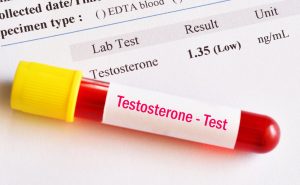 Testosterone has been taking a bit of a hit in the news these days. Men appear more susceptible to COVID-19, and some are blaming potential immunosuppressive effects of the primary male sex hormone.
Testosterone has been taking a bit of a hit in the news these days. Men appear more susceptible to COVID-19, and some are blaming potential immunosuppressive effects of the primary male sex hormone.
What is the connection between testosterone and immune health?
Advertisement
There is evidence showing that high testosterone can influence susceptibility to pathogens. Men also seem to get the flu at a higher rate, and flu vaccines tend to have less of an effect on men with high-testosterone.
Women and men with low testosterone tend to have a better response to flu vaccines.
But that doesn’t necessarily mean you should be rushing to drop your testosterone levels. Nature is doing that for you. Men naturally lose testosterone at a rate of 1-3% per year.
Aside from a slightly increased risk of viral illness, high testosterone can also have an effect on prostate size. There is research showing high testosterone is correlated with a larger prostate size and increased risk for benign prostatic hyperplasia (BPH).
Keep in mind that an overwhelming number of men, roughly 90% of those in the US, surfer prostate enlargement in their 80s.
There is a massive range of what’s considered “normal” testosterone levels.
How a person experiences testosterone drops is relative to their initial level. If you were on the higher end of the spectrum and it drops slightly, it may be felt more than someone in the middle who drops even more.
What does low testosterone feel like? A drop in testosterone is quite hard to determine based on feeling alone.
It could result in weakness, fatigue, lost muscle, weight gain, and a lower libido, but the only real way to know what’s going on with testosterone is with a blood test.
Those feelings, of course, might not be entirely attached to lower testosterone. And going for testosterone replacement therapy (TRT) might not be the best option for your health. Especially during the pandemic.
Advertisement
Research shows one of the biggest factors in age-related testosterone loss is increased body fat. When testosterone interacts with fat, it converts to estrogen, ultimately ending up more abdominal fat.
Nonsurgical weight loss, on the other hand, is associated with increased circulating testosterone. Weight loss is also associated with more energy, increased libido, and enhanced immunity.
Testosterone can be tricky. Too high, and it could put you at risk for infections. Too low, and it can have several effects on day-to-day health. Ideally, you want to feel your best, and losing weight can help by increasing testosterone by a safe amount.
